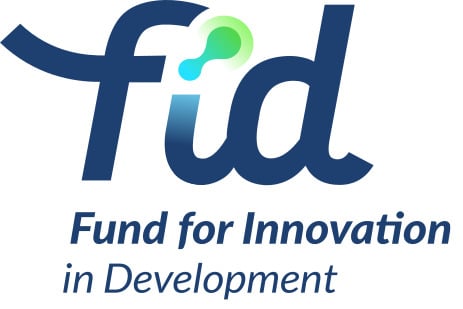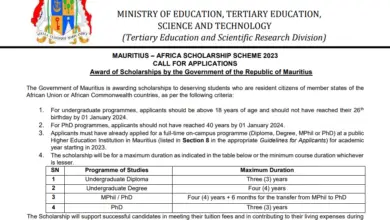FUND FOR INNOVATION IN DEVELOPMENT (FID): GET FUNDING FOR YOUR INNOVATION OR SOLUTION

Apply for the Fund for Innovation in Development (FID)
DEADLINE: Ongoing
Fund for Innovation in Development
The Fund for Innovation in Development (FID) is a new initiative to support innovation that contributes to reducing global poverty and inequality. Through flexible grant funding, FID enables innovators and researchers to test new ideas, build rigorous evidence of what works, and scale the highest-impact and most cost- effective solutions.
What FID does
1. Innovation funding to alleviate poverty and inequality
Innovation is essential to the global fight against poverty and inequality, particularly in the world’s poorest countries.
Around the world, new approaches, policies and programs are impacting the ways in which governments, businesses and NGOs work to improve the well-being of the most vulnerable. To identify and scale the most promising solutions, FID Board Chair and 2019 Nobel Laureate Esther Duflo proposes a paradigm shift in our approach to tackling poverty and inequality: rather than making decisions based on general theories, specific solutions can be scientifically tested to assess their effectiveness and funding decisions can – and should – be based on evidence.
Innovation is central to accelerating a more just and inclusive world. FID embodies this idea by offering a renewed approach to development assistance, providing grant funding to test new ideas, experiment and demonstrate – based on rigorous evaluation methods – what works in development, and scale the most efficient solutions with the greatest positive impact.
FID accepts applications:
- for innovations in any sector, and specifically encourages applications for solutions in education, health, climate change, and gender equality
- for innovations in all low- and middle-income countries, and specifically encourages applications from the priority countries for French aid
- from nearly any type of applicant, including researchers, governments, NGOs and for-profit companies.
2. FID’s Core Principles
FID makes funding decisions based on three core principles:
- Rigorous proof of impact on improving the living conditions of people living in poverty. Evidence of clear, measurable outcomes demonstrates what works in the fight against poverty and inequality. FID relies on rigorous evidence of causal impact in determining which innovations to fund, and supports research to generate evidence on development innovations.
- Cost-effectiveness in the achievement of specific development objectives, compared to existing approaches. Taking a best-in-class approach to cost-effectiveness, FID invests in innovations that have the potential to deliver more impact for every euro than alternative solutions.
- Potential for scale, widespread adoption, and sustainability. FID’s ultimate goal is to support impactful development solutions that will replicate and scale to improve millions of lives while being financially sustained through the public and/or private sector.
3. Trajectories for scaling innovations
Innovations can generally be scaled up through one of three pathways:
- Public scaling:
An innovation designed to be scaled up with the financial support of developing country governments, donors, or philanthropists.
- Commercial scaling:
An innovation designed to be scaled up as a business, financed, for example, by customer payments, and earned revenue, investments, or commercial capital.
- Hybrid scaling:
An innovation designed to be scaled up through a combination of commercial and public channels (e.g., partly through donor or philanthropic grant funding and partly through earned income, such as a government paying or subsidizing the cost of a marketed product or service that improves the lives of the poor).
The FID deploys different stages of funding, depending on the level of maturity of the innovation
Find out more about each stage of funding
Stage 0
Prepare grants
These grants support the development of proposals for Stage 1, 2 or 3 grants
UP TO €50K
Stage 1
Pilot
Pilot stage of innovations that are early in development and need real-world testing to refine the basic model and establish the viability of the innovation at small scale.
UP TO €200K
Stage 2
Test and Position for Scale
The further testing and continued growth of innovations to assess the likelihood that they can achieve both impact and viability at a larger scale.
UP TO €1.5M
Stage 3
Transition to Scale
Transition of rigorously tested and validated solutions to widespread scaling.
UP TO €4M
Transforming Public Policy
Innovations that have reached a mature stage and that are intended to be highly catalytic for public policy transformations.
UP TO €150K
Please prepare to submit your application by downloading and reviewing the files below:
- The application form which includes all the questions you will be asked in the online form.
- You can refer to the frequently asked questions to prepare your application.
Please note that you will have to submit the online form in one session. FID encourages applicants to complete this word version prior to starting the online submission.
Visit the Fund for Innovation Development (FID) Website to learn about How To Apply
Visit the Fund for Innovation Development (FID) Online Application Form Directly
______
You may also check> List of Agriculture Funding Grants
______
If you want to receive more information on global opportunities from us, please join our WhatsApp group and Telegram Channel below. You may also follow our Facebook page and Twitter handle:
CLICK HERE to Join Youth Opportunities Hub WhatsApp Group (If you are already in one of our WhatsApp groups, then there is no need to join)
PAY ATTENTION: Join youthopportunitieshub.com Telegram Channel! Never miss important updates!
Please follow Youth Opportunities Hub on: Twitter | Facebook




